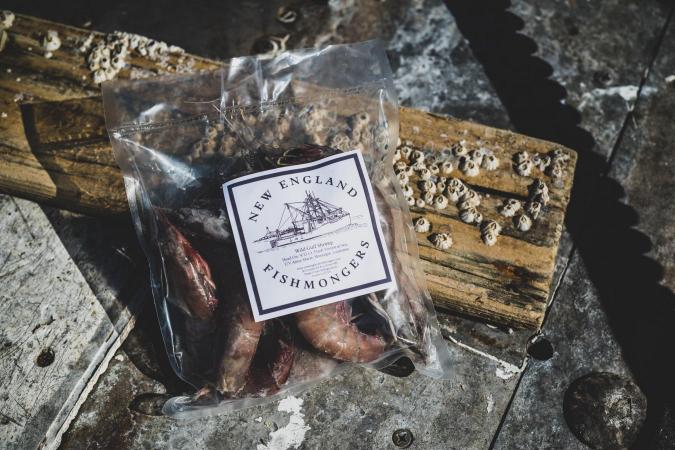Meet the Farmers
When Tim Rider and Kayla Cox both began their commercial fishing careers in college, they decided that, in contrast to New England's large-scale fisheries, they were going to sell their catch directly to consumers. In 2014, Tim began selling his jig-caught whole fish to local chefs, and in 2017, he expanded to farmers markets, partnering with other local farms to continue distributing his fish to consumers. Kayla joined the business in 2019, and since then, they’ve purchased two refrigerated vans and one refrigerated box truck, started a home delivery program to customers throughout New England, and opened a small seafood processing plant in Dover, NH. They own one fishing vessel, the F/V Finlander 2, for scalloping and jigging, employ five staff members to run weekly markets and make home deliveries, and they have a growing wholesale business with several clients throughout the country. In 2020, they grossed over $1 million in sales alone, and they expect to reach $1.5 million in sales in 2021. Their goal is to sell $2 million of seafood in 2022.
Tim and Kayla are tightly networked into the Local Catch and Slow Fish movements, which have played an important role in fostering their relationships with other like-minded fishers across the country. They’ve partnered with Alaskan salmon/crab fishers and a shrimper in Louisiana to bring the best wild seafood to New England. They also work closely with Northwest Atlantic Marine Alliance (NAMA), a network that supports healthy fisheries and works to preserve small-scale fishing communities. Through NAMA, they were connected to the filmmaker JD Schuyler, who produced Last Man Fishing, a film that tells the story of Tim and Kayla and New England Fishmongers and its impact on the fishing industry. New England Fishmongers have also been featured in national publications including Food and Wine magazine, NPR Here & Now, and the Washington Post.
Sustainable Agriculture Practices
Sustainability in fishing is tied both to the methods used to catch fish and to the relationships cultivated between customers and fishers. Conventional trawlers that scrape the seafloor and destroy fish habitats while decimating fish populations in order to get fish en-masse to market are the exact opposite of sustainable fishing. Tim and Kayla have built sustainable practices into New England Fishmongers in a number of ways
- Their hook-and-line jig boat, outfitted with eight automatic jig machines, allows them to catch a healthy number of fish in a manner beneficial to wild fisheries. Unlike the dragger-dominated fishery of most of New England, they utilize fishing methods that have less impact on the seafloor.
- Support independent wild fishers who also use sustainable methods, and they pay those fishers sustainable prices for the higher-quality product they catch.
- Educate their customers about proper management and conservation of wild fisheries.
Learn more by visiting: https://newenglandfishmongers.com/


